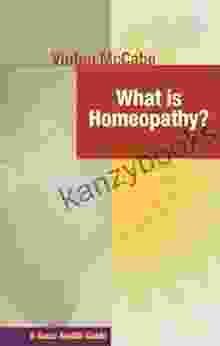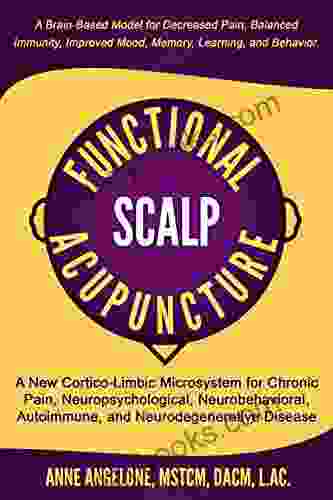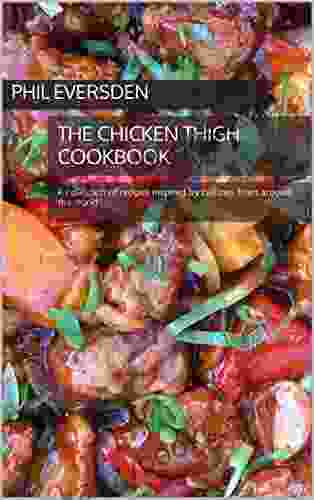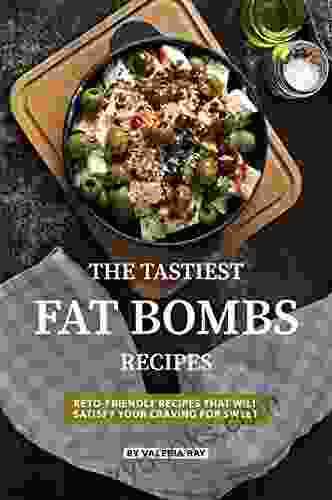What Is Homeopathy? Homeopathy in Thought and Action

5 out of 5
| Language | : | English |
| File size | : | 226 KB |
| Text-to-Speech | : | Enabled |
| Screen Reader | : | Supported |
| Enhanced typesetting | : | Enabled |
| Word Wise | : | Enabled |
| Print length | : | 59 pages |
| Lending | : | Enabled |
Homeopathy is a system of alternative medicine created in the late 18th century by Samuel Hahnemann. It is based on the belief that "like cures like" and that highly diluted substances can be used to treat a wide range of illnesses. Homeopathy has been criticized by scientists and medical professionals for its lack of scientific evidence, and there is no good evidence that it is effective for any condition.
History of Homeopathy
Homeopathy was developed by Samuel Hahnemann, a German physician, in the late 18th century. Hahnemann was dissatisfied with the medical practices of his time, which often involved bloodletting and purging. He believed that these practices were harmful and that there must be a better way to treat illness.
Hahnemann began to experiment with different substances, testing them on himself and his friends. He found that certain substances, when taken in small doses, could produce symptoms similar to those of the illnesses they were supposed to treat. This led him to develop the principle of "like cures like," which is the foundation of homeopathy.
Hahnemann also believed that the body has the ability to heal itself and that homeopathic remedies could help to stimulate this process. He developed a system of preparing homeopathic remedies by diluting the active substance in water or alcohol. The more dilute the remedy, the more powerful it was believed to be.
Principles of Homeopathy
Homeopathy is based on the following principles:
- Like cures like. This is the fundamental principle of homeopathy. It is believed that a substance that can cause a certain set of symptoms in a healthy person can also be used to treat those same symptoms in a sick person.
- The law of similars. This law states that the more similar a homeopathic remedy is to the symptoms of the illness being treated, the more effective it will be.
- The law of infinitesimality. This law states that the more dilute a homeopathic remedy is, the more powerful it will be.
Preparation of Homeopathic Remedies
Homeopathic remedies are prepared by diluting the active substance in water or alcohol. The active substance can be a plant, mineral, or animal product. The dilution process is repeated several times, until the final product is extremely dilute.
The dilution process is believed to remove the harmful effects of the active substance while leaving behind its healing properties. Homeopathic remedies are typically taken in small doses, often several times a day.
Effectiveness of Homeopathy
There is no good evidence that homeopathy is effective for any condition. A number of studies have shown that homeopathic remedies are no more effective than placebo.
In 2005, the Australian National Health and Medical Research Council (NHMRC) concluded that there was no reliable evidence that homeopathy was effective for any health condition.
The NHMRC also found that homeopathy could be dangerous, as it can delay or prevent people from seeking conventional medical treatment.
Homeopathy is a system of alternative medicine that has been criticized for its lack of scientific evidence. There is no good evidence that homeopathy is effective for any condition, and it can be dangerous if it delays or prevents people from seeking conventional medical treatment.
If you are considering using homeopathy, it is important to talk to your doctor first. Your doctor can help you to determine whether homeopathy is right for you and can help you to avoid any potential risks.
5 out of 5
| Language | : | English |
| File size | : | 226 KB |
| Text-to-Speech | : | Enabled |
| Screen Reader | : | Supported |
| Enhanced typesetting | : | Enabled |
| Word Wise | : | Enabled |
| Print length | : | 59 pages |
| Lending | : | Enabled |
Do you want to contribute by writing guest posts on this blog?
Please contact us and send us a resume of previous articles that you have written.
 Book
Book Novel
Novel Page
Page Chapter
Chapter Text
Text Story
Story Genre
Genre Reader
Reader Library
Library Paperback
Paperback E-book
E-book Magazine
Magazine Newspaper
Newspaper Paragraph
Paragraph Sentence
Sentence Bookmark
Bookmark Shelf
Shelf Glossary
Glossary Bibliography
Bibliography Foreword
Foreword Preface
Preface Synopsis
Synopsis Annotation
Annotation Footnote
Footnote Manuscript
Manuscript Scroll
Scroll Codex
Codex Tome
Tome Bestseller
Bestseller Classics
Classics Library card
Library card Narrative
Narrative Biography
Biography Autobiography
Autobiography Memoir
Memoir Reference
Reference Encyclopedia
Encyclopedia Valerie Trammel
Valerie Trammel Viveka Blom Nygren
Viveka Blom Nygren Sophie Soto
Sophie Soto Tope Omotosho
Tope Omotosho Victoria Starwood
Victoria Starwood Wayne Belonoha
Wayne Belonoha Stacy Tornio
Stacy Tornio Vin Zeno
Vin Zeno Wiley Mullins
Wiley Mullins Seabring Davis
Seabring Davis S Rob
S Rob Steve Bremner
Steve Bremner Stacey Joyful
Stacey Joyful Julie Gilbert
Julie Gilbert Xandra Nash
Xandra Nash T M Doran
T M Doran Nosco Publishing
Nosco Publishing Robert Spencer
Robert Spencer Sonia Ray
Sonia Ray Suzan Saxman
Suzan Saxman
Light bulbAdvertise smarter! Our strategic ad space ensures maximum exposure. Reserve your spot today!

 Anthony WellsHigh Drama, Low Maintenance: The Ultimate Guide to Cultivating Effortless...
Anthony WellsHigh Drama, Low Maintenance: The Ultimate Guide to Cultivating Effortless... Michael SimmonsFollow ·4.8k
Michael SimmonsFollow ·4.8k Mario SimmonsFollow ·11.2k
Mario SimmonsFollow ·11.2k Chad PriceFollow ·7k
Chad PriceFollow ·7k Morris CarterFollow ·19.7k
Morris CarterFollow ·19.7k Harvey HughesFollow ·11.7k
Harvey HughesFollow ·11.7k Ike BellFollow ·19.9k
Ike BellFollow ·19.9k David Foster WallaceFollow ·17.2k
David Foster WallaceFollow ·17.2k Jamie BellFollow ·6.7k
Jamie BellFollow ·6.7k
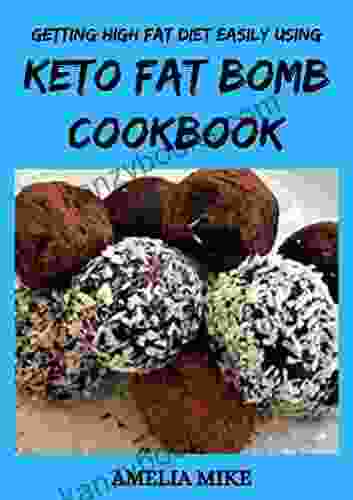
 Virginia Woolf
Virginia WoolfGetting High Fat Diet Easily Using Keto Fat Bomb Cookbook
Unveiling the Power of Fat...

 Milan Kundera
Milan KunderaAre You Cryin' Brian? Find the Inspiration and Humor in...
Life can be full of...
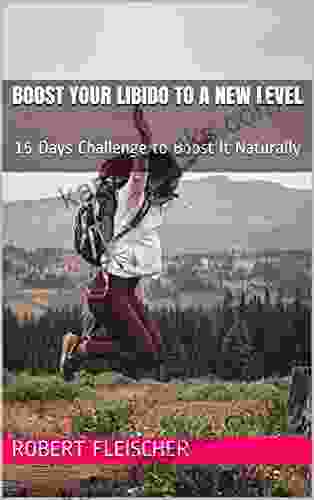
 Edmund Hayes
Edmund HayesUnlock Your Vitality: The 15-Day Natural Energy Boost...
Are You Ready to...
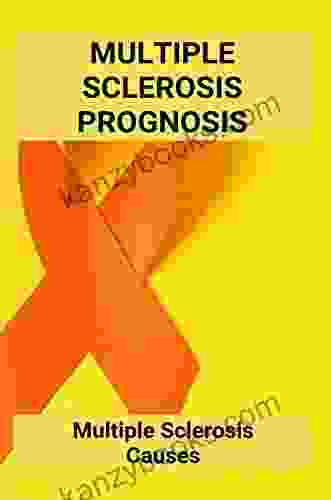
 Gavin Mitchell
Gavin MitchellMultiple Sclerosis Life Expectancy: Unveiling the Impact...
Multiple Sclerosis (MS) is a...

 Gabriel Garcia Marquez
Gabriel Garcia MarquezGet The Thighs That Can Crack Man Head Like Walnut
Are you tired of weak, flabby...
5 out of 5
| Language | : | English |
| File size | : | 226 KB |
| Text-to-Speech | : | Enabled |
| Screen Reader | : | Supported |
| Enhanced typesetting | : | Enabled |
| Word Wise | : | Enabled |
| Print length | : | 59 pages |
| Lending | : | Enabled |


